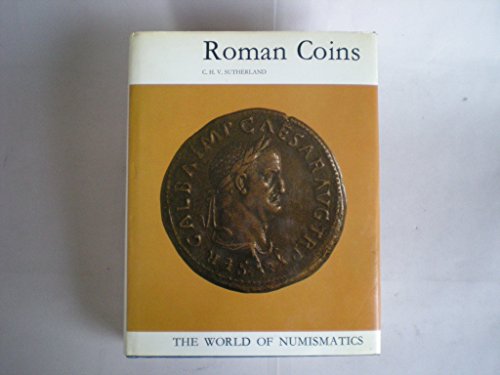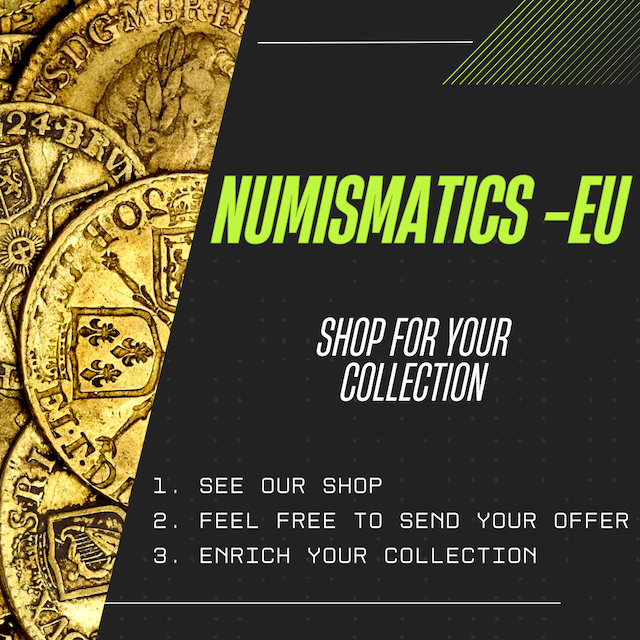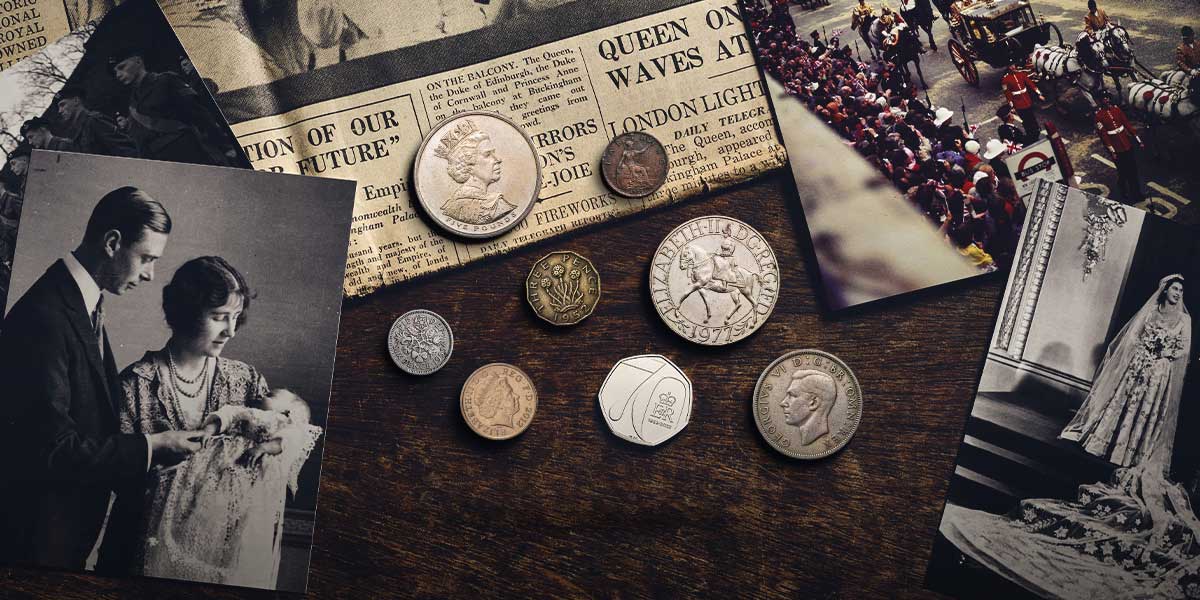Excellent Facts For Picking Coin Identification And Currency Exchange
Wiki Article
What Is The Best Way To Use A Database To Research Numismatics Regarding Central Banks?
In order to effectively gather and evaluate data, you'll be required to follow some important steps.
Database Selection: Select databases that specialize in financial and numismatic data. These include those offered by financial organizations and academic libraries, numismatic societies and so on. Examples include Numista, the World Bank's database, or academic journal repositories such as JSTOR.
Search Strategy: Identify your research goals. You may be looking for the history of coin-related issues of a central bank in economic policies that are reflected in coin design or the economic impact numismatic choices have on a country. Tailor your search terms accordingly using keywords such as "central bank coins,"" "numismatics," and specific central bank names.
Data Collection: Use database's advanced search features to find articles as well as reports, datasets, and other information that you find interesting. Discover historical records, policies documents, and catalogs of numismatics that detail the types of coins and locations for minting.
Analyze: Once you've collected the data you need, look for patterns and trends. Examine how each central bank approaches coinage. Study the evolution of the design of coins over time. Find correlations between the numismatic trend and wider economic policies or historical events.
Cross-References: Verify what you've discovered by cross-referencing information from several databases. This provides a more complete understanding of the data and reduces the risks of relying on isolated or biased data sources.
Documentation: Record your findings in detail, citing the sources and methods used. This is vital for academic and professional purposes, as it enhances the credibility of your research.
Stay Updated: Numismatic data and central bank policies evolve over time. Make sure to regularly check the database to keep informed of the latest research, new coin catalogs, or changes to central bank policies which could impact numismatic trends.
Use these methods to conduct an extensive and deep study of the numismatics at central banks. This approach will allow you to study both the past and present aspects of the production and circulation of coins as well the wider economic consequences. Follow the most popular mint url for blog tips including banknote holder, gold coins, banknote errors, banknote expo, banknote album, antique banknotes, coin die, uncirculated, coin auction, pound and more.

What Can I Do To Research Numismatics In Relation To Exhibitions And Show Events Using Databases?
In order to conduct numismatic research, is essential to use databases that store information about exhibitions, show, conferences and other occasions. This is a structured method for conducting this type of research. Examples include websites of the major numismatic societies like the American Numismatic Association (ANA) and online platforms that provide information on worldwide numismatic events and museum exhibition archives.
Define Research Focus: Specify your research objectives. Are you looking to learn more about the upcoming numismatic exhibitions and previous ones or conferences that focus on Numismatics? Regional coin shows? Thematic exhibitions or education events. Find out what you are looking for to guide your search.
Keyword strategy Use keywords for "numismatic" events and exhibitions, "coin shows", "numismatic conferences". If you are able to you could also include event names or locations. Use advanced search to filter results by date the event, its kind (such a exhibitions or conferences) and the geographical location.
Access to information regarding the upcoming and past numismatic shows. Data collection: Collect data on dates, locations organizers, themes or special collections that are highlighted as exhibitor participants, as well as related catalogs or publications. Look for databases with virtual tours, or access to exhibition materials that are digital.
Review the data to identify the educational purposes as well as the themes and patterns of numismatic exhibitions and events. Analyze how different exhibits and shows increase the public's knowledge of numismatics.
Cross-Referencing: Check your findings with information from multiple database databases, listings of events or official sites. This ensures accuracy and completeness in your research, providing an extensive overview of numismatic exhibition activities globally.
Documentation - Record your research findings in a structured manner including the sources you used and highlighting methods. Notate the database names or search terms, as well as the relevance of each source to your research.
Keep up-to-date: Numismatics is an evolving field featuring numerous conferences, exhibitions, and shows. Stay up-to-date by keeping track of updates from the numismatic society, event organizers and databases for specialized events.
By following these steps, you will be able to effectively use databases to explore the numismatics of exhibition and show events. This method lets you explore the diversity, educational advantages, and contributions to scholarly research made by numismatic exhibitions worldwide. View the top rated denomination tips for site advice including banknote printing, coin club, coin planchet, banknote printing, zloty, banknote display, real, coin pressing, numismatic value, slovak coins and more.

How Can I Conduct Research On Numismatics With Respect To Legal Experts With A Database On Numismatics?
For a structured method of conducting this research: This is a method that can be structured for conducting such studies. Database selection: Select databases that are specialized in legal research, numismatic law, court cases dealing with numismatic issues and academic papers on legal aspects of the numismatics. Legal research platforms such as Westlaw as well as LexisNexis are examples, along with the numismatic journals, publications of organizations that specialize in numismatics, as well as numismatic law journals.
Define Research Focus: Specify your research objectives. Are you looking for the legal frameworks which govern coinage and currencies, numismatic conflict or regulations governing circulation and production of coins or legal interpretations of the authenticity and ownership of numismatics? Determine where you wish to target your search.
Search Strategy: Use keywords like "numismatic laws,"" "legal aspects" of coinage, "numismatic disputes," and also the legal concept or cases (such a authenticity or ownership, as well as counterfeiting). Search results can be filtered according to date and jurisdiction (national, international,) and also legal topics that are relevant to the numismatic field.
Data Collection: Access to legal precedents such as court decisions as well as legislative texts and academic articles regarding numismatic law. Collect details, such as the summaries of decisions or legal analysis and interpretations of statutes pertinent to the case. Also, gather historical perspectives.
Analyze: Understand the legal implications in numismatics by studying the data. Find out how legal frameworks affect numismatic trading and collection management procedures as well as authentication processes, and the international trade of numismatic objects. Compare legal interpretations from different countries.
Cross-Referencing Verify your findings through cross-referencing between databases such as legal journals, legal journals, and court records. This lets you make sure you are conducting a thorough investigation and getting a complete overview of the numismatics law.
Documentation - Record your findings in a structured manner including sources used as well as the methods you've employed. Define the databases used, the terms you used to search for, as well as the relevance to your query.
Stay up-to-date: Numismatic laws and legal interpretations are evolving in response to legislative changes and court decisions. Keep abreast of legal developments by keeping track of updates on legal databases, books on the law of numismatics, and numismatic societies.
Use these guidelines to utilize databases efficiently to study numismatics based on legal experts. This method allows a detailed analysis of legal structures as well as scholarly interpretations which intersect with the field the study of numismatics. Take a look at the top rated more on peso for more info including banknote artist, coin catalog, platinum, coin forum, uncirculated coins, coin design, pound, proof coins, yen, euro and more.

How Can I Find Out More About Numismatics Using A Database That Has Historical Archives In Mind?
Here's a structured approach to conducting such research:Database Selection: Select databases that specialize in historical archives, numismatic collection catalogs of museums, as well as historical documents that have been digitally archived. A structured approach is provided to help you conduct this kind of research. They include national archives websites museums archives platforms as well as numismatic research platforms, and catalogs of libraries.
Define Research Focus: Specify your research objectives. Are you seeking to learn about the history of coins or collections, in particular? historic transactions involving numismatic objects or the historical context of coins? Clarify your focus in order to focus your research.
Search Strategy: Use keywords like "numismatic archives, "historical coin collection," and "archival record on coinage," if applicable. Additionally, think about adding specific historical periods, themes, geographical regions or numismatics, in the event that they are appropriate. Utilize advanced search options to narrow your search results based on document type (manuscripts and correspondence) Archival repository, type of document, or the date.
Data Collection: Get access to information related to numismatics in historical and archival documents that were digitized. Collect information from auction catalogs, photographs of coins from the past, and archives of museum acquisitions.
Analysis: Analyze and interpret the data to gain a better understanding of the historical contexts, as well as the stories that surround objects of numismatic origin. Analyze the ways in which the coins were traded, and utilized in trade. Also, analyze their importance in cultural and political exchanges.
Cross-Referencing: Confirm your findings by cross-referencing information across multiple databases, archival catalogs, collections of museums, and historical publications. This will ensure that your research is reliable and complete, allowing you to get an accurate picture of the numismatic past, as documented in historical archives.
Documentation - Record your findings by citing sources and listing the methods you have used. Note down the names of databases or search terms, as well as the relevance of each source in relation to your study.
Keep up-to-date Keep yourself informed: Historical archives and new discoveries in numismatics are constantly documented and analyzed. Keep yourself up to date by following updates from museum collections, archives and scholarly journals.
You can use databases to explore the relationship between archives, numismatics, and historical cultural influences, by following these easy steps. This method allows a deeper look into the cultural influences, historical contexts and the impact on society of numismatic items, offering important insights into the evolution of coinage throughout history. Read the top rated get more information for banknote book for more tips including proof coins, nickel, rupee, euro, peso, yen, half-dollar, banknote forum, currency catalog, coin edge and more.

How Do I Search Databases In Numismatics To Find Networking Opportunities?
Researching numismatics with regards to networking possibilities involves using databases and platforms that allow connections between dealers, collectors as well as scholars and other enthusiasts in the numismatic world. Here is a methodological way to conduct such research: Database selection: Choose platforms or databases which are specifically designed for numismatic opportunities for networking. These include websites that are numismatic as well as online communities (such as CoinTalk or Reddit’s r/Coins), professional networking platforms as well as social media communities.
Set the Research Focus. Specify Your goals for networking. Are you looking to connect with collectors and exchange knowledge and engage dealers to buy or sell items, work with researchers for research projects, or take part in Numismatic events and conferences? Make sure you know what you want to achieve so that you to narrow your search.
Search strategy: Use keywords that describe your interests, including "numismatics", "coin collectors forums" or "numismatic social networking groups". If appropriate, you can also include geographical areas and/or specific interests. Utilize search functions on platforms to find relevant groups, events, and forums.
Data Collection: Gather details on the networking opportunities available within the numismatics community. Data collection: Access information on networking opportunities within numismatic community.
Analyze the data to identify networking opportunities and channels. Analyze the levels of engagement in groups and forums, the diversity of participants (collectors dealers, scholars, and collectors), the frequency of updates and discussions and the possibility of professional or academic collaborations.
Cross-Reference your findings: Verify by comparing information from different databases and websites of the numismatic society and other social media groups. This lets you discover the most comprehensive opportunities across platforms and regions.
Engagement: Join selected networks by actively participating by sharing your insights or asking questions, and sharing your knowledge. Establish connections with fellow dealers, collectors and scholars to increase your network and share valuable information about numismatics.
Documentation. Document your network activities by recording the groups, platforms as well as the events and contacts you have made. Document and track the opportunities you explored and also the results you achieved by networking.
These steps can assist you to explore numismatics as a way to network. This approach will allow you to establish a professional or personal numismatic network, which can be used for collaborations or information exchange as well as participation in numismatic gatherings. Read the most popular more helpful hints for platinum for site examples including banknote marketplace, coin display, banknote identification, coin catalog, banknote catalog, numismatic investment, numismatics, currency society, coin show, forint and more.
